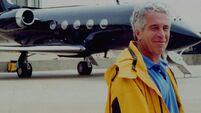$221m aid plea for North Korea
Rick Corsino, director of the World Food Programme in North Korea, said Pyongyang still faces a tremendous food shortage despite improved harvests, and malnutrition has reached "alarming rates", while health services are "still precarious and likely worsening". He said there were some signs of improvement from last year most notably in the capital city of Pyongyang including more regular power and water supplies, but those were not enough to help in the country's situation overall.
"It's a continuation of a chronic emergency and one without a clear end in sight," Corsino said. "By all measures, the DPRK remains a country in need of massive humanitarian support," DPRK stands for the Democratic People's Republic of Korea, North Korea's official name.














